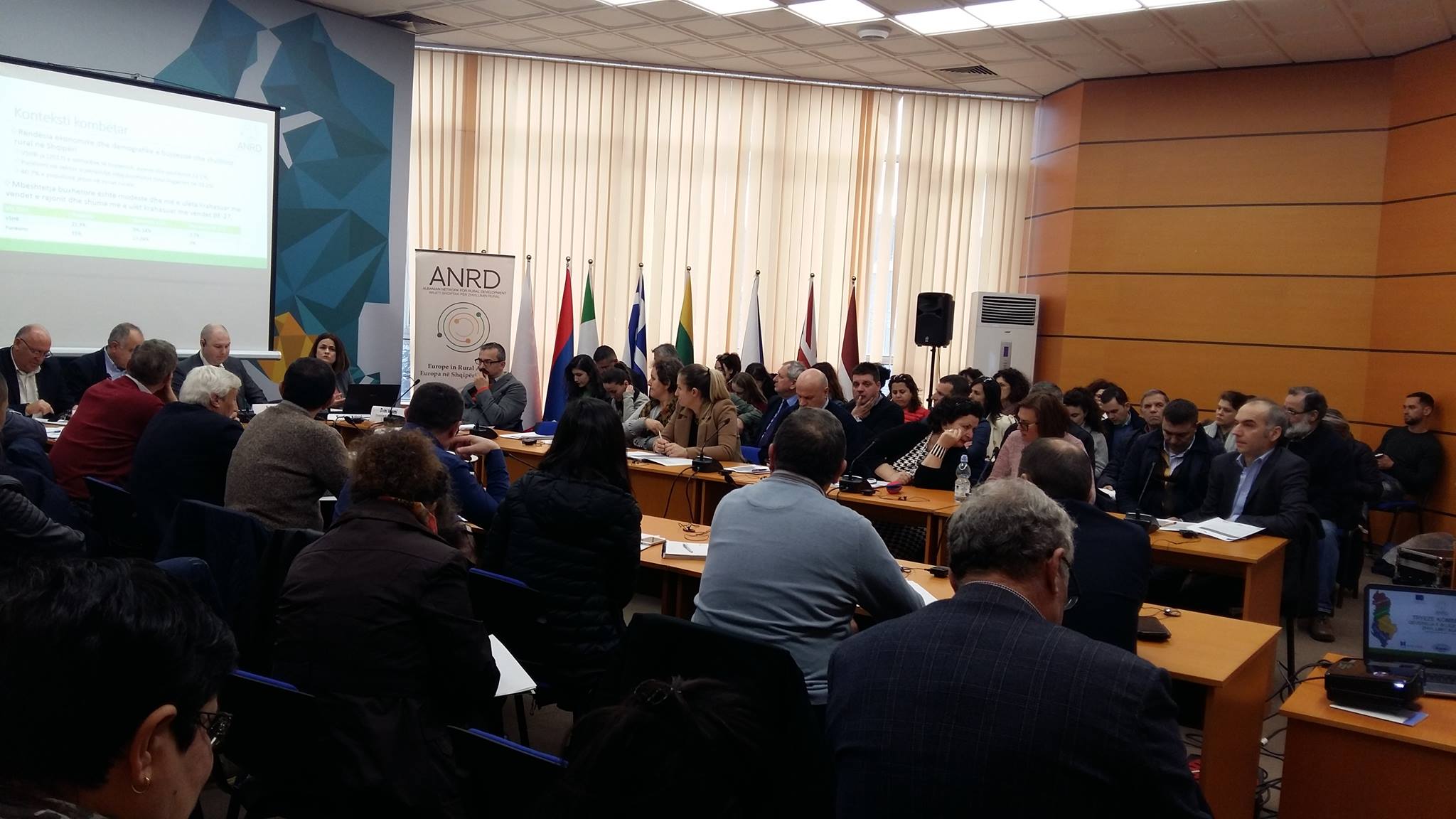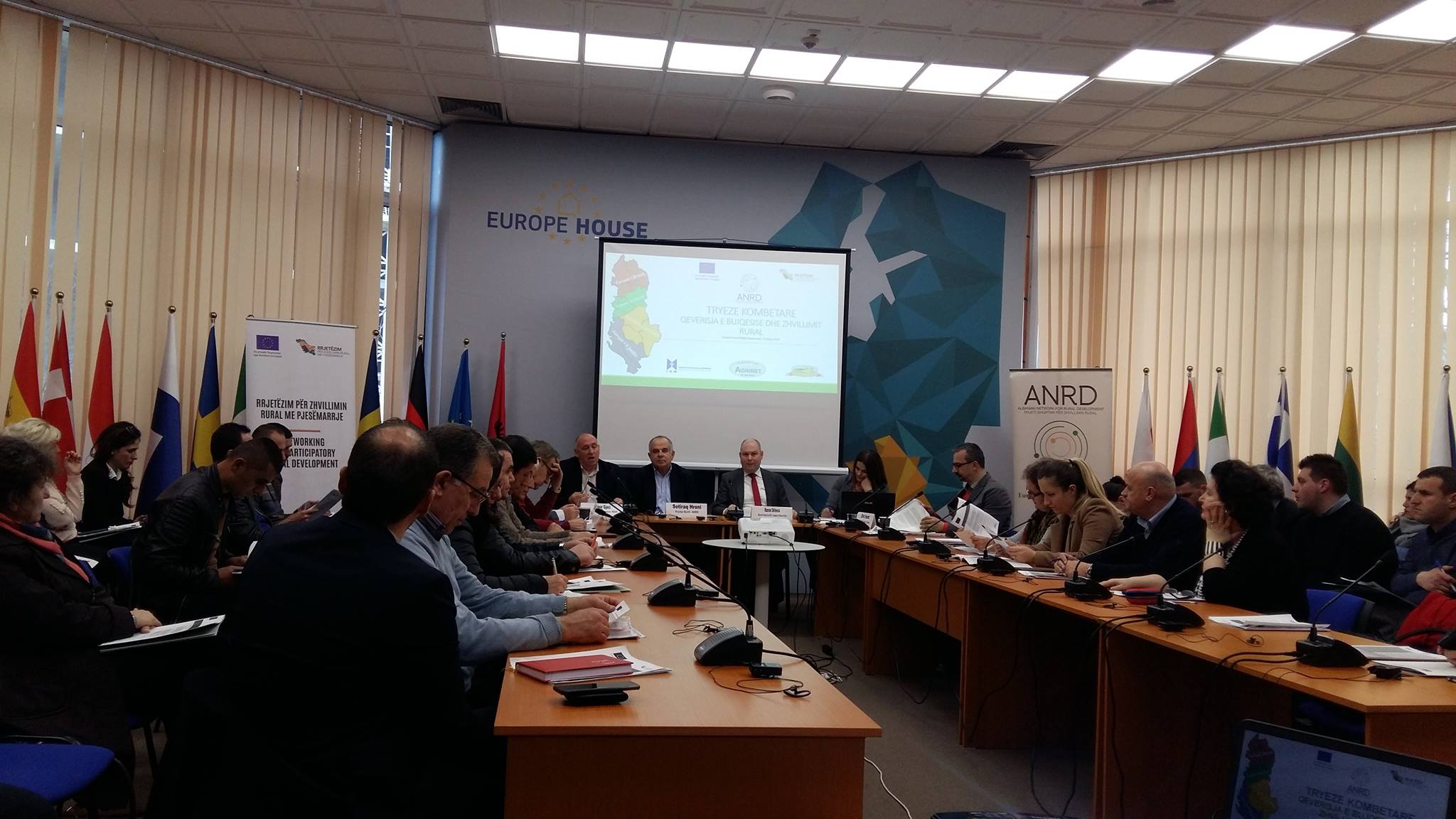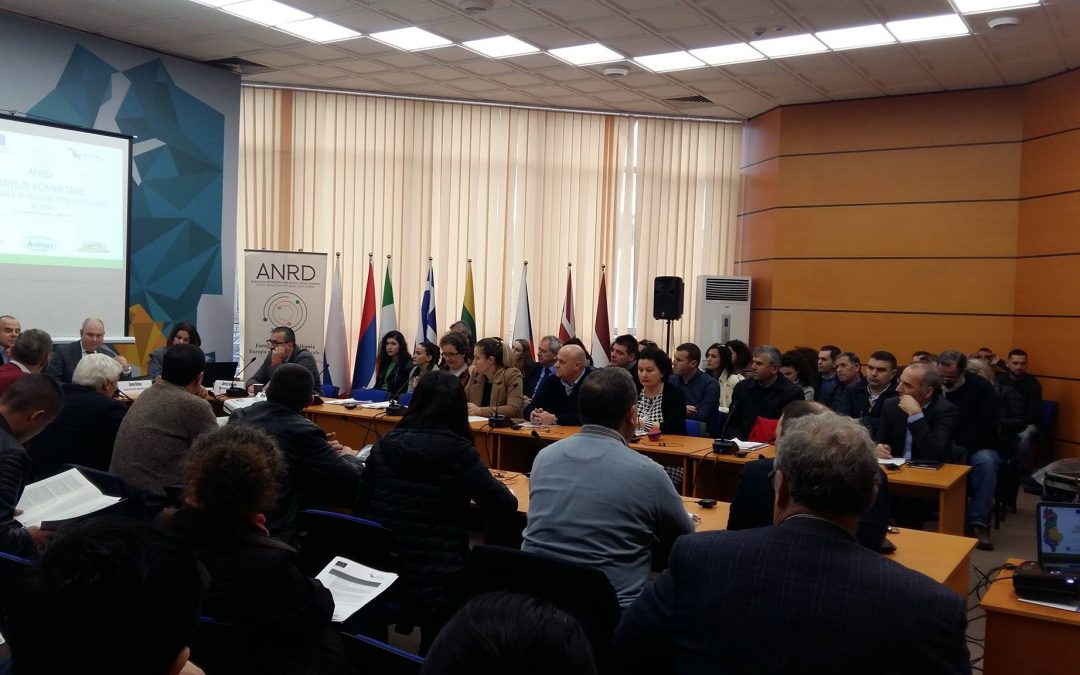The Institute for Democracy and Mediation organized on February 12 th at the premises of the EU House the National Roundtable on Governance of Agriculture and Rural Development. The round table brought together around 80 participants from all over the country, representatives of central institutions and local authorities, civil society, constituents of the Albanian Rural Development Network (ANRD), farmers’ associations and rural entrepreneurs, academics, experts etc. The roundtable brought the perspective of farmers and other actors as well as of European integration on policies and instruments of support to agriculture and rural development. The roundtable, as intended, increased the awareness of various actors on the challenges and important issues of national sector policies.
The National roundtable was organized following the nation-wide consultation process with the Drini, Arbëri, Egnatia and Vjosa regional forums, which took place in November 2018. Eight consultative meetings brought together around 250 participants representing farmers, civil society organizations, local authorities, including county councils and counties, agriculture directorates, universities and entrepreneurs in agro – tourism, agriculture, medicinal plants, livestock, beekeeping, etc.


The Position Paper on Governance of Agriculture and Rural Development, prepared with the input of farmers and other stakeholders involved in the consultation process, addresses the main issues and weaknesses of the national sector policy framework and provides recommendations for addressing the barriers to effective policies.
The event was opened by ANRD Board Chairman Sotiraq Hroni, who provided a general overview of the Albanian Rural Development Network (ANRD) efforts and active role in the processes and reforms in
agriculture and rural development. Among other things, he stressed: “the main objective of the Network is bottom-up advocacy for the formulation and implementation of rural development policies. The Position Paper represents, as never before, a document consulted and agreed by the local actors in the four regional forums of Drini, Arbëri, Egnatia and Vjosa.
Mr. Grigor Gjeçi, IPARD Managing Authority and Director of Agricultural and Rural Policies at the Ministry of Agriculture and Rural Development introduced the progress made in accreditation of national institutions for decentralized managemnet of IPARD Program. In his speech, Gjeçi emphasized that ANRD was considered a reliable partner and an instrument in the process of implementing the IPARD Program.
ANRD’s National Coordinator, Evelina Azizaj, introduced the consultation process, critical issues and shortcomings that hinder sector policies to be effective and are related to the incompatibility with the spirit and principles of the EU’s Common Agricultural Policy.
The discussion session was attended by academics of the Agricultural University of Tirana, experts, FAO office representatives and other sector donors, of Agricultural and Rural Development Agency, representatives of CSOs involved in similar initiatives, member organizations of ANRD etc. The participants fully supported the findings and recommendations included in this policy document.
At the end, the representative of the EU Delegation in Tirana, Mr. Razvan Ghitescu, Program Manager for Agriculture and Rural Development, expressed concern over the low national budget for the sector, pointing out that IPARD II funds should not be considered complementary to sectoral policies. Regarding the issues raised and addressed in the Position Paper, he invited public authorities and all socio-economic partners to dialogue on finding possible solutions stressing out that Strong partnership and transparency are key principles for the successful implementation of the IPARD II program.
Following up the roundtable discussions, ANRD furthered the Appeal for National Dialogue on Governance of Agriculture and Rural Development – A Critical Necessity”. The call is a plea for Parliamentary Commission on Production, Trade and Environment, Ministry of Agriculture and Rural Development, as well as other public institutions to build ongoing dialogue for discussing the challenges and barriers that hinder the policies and supporting instruments of the sector from being effective and identifying swift and feasible solutions.

